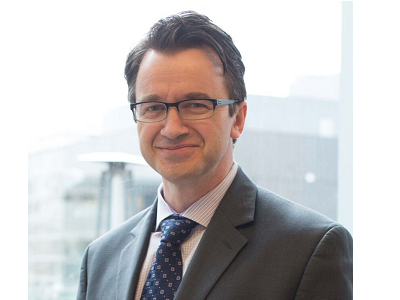Listen to this article
India has over 1 lakh qualified mutual fund distributors but only a handful of them have done professional courses like CFP to hone their skills. What could be the reasons for this lacklustre response?
One of the reasons why we see low numbers is probably because the Indian market is still at a point where there is a more dominant focus on products. Other reasons could be the phase of development of mutual funds in India and low consumer awareness.
Having said this, we see the evolution of more holistic services where there is an increased emphasis on adding advice or solution around product delivery. Also, there is a shift happening from a saving culture to an investing culture. I think the industry has done an amazing job of raising awareness of mutual funds through its promotion campaigns.
With the rising awareness, more people will seek financial planning and look for more qualified advisors. And this would become an engine to grow the number of CFP professionals in India.
Both, distributors who have done CFP and those who have not done CFP have been doing well in their business. In such a scenario, why do you think every distributor should pursue professional courses like CFP?
I think the important thing is to keep learning that can help MFDs/RIAs to do their job well.
Through CFP certification, distributors can hone skills to engage clients not only on the mutual funds but also they can talk about how that interrelates to tax, retirement and insurance issues. It can place mutual funds in the context of overall financial planning.
Currently, we have over 2400 Indian CFP professionals and over 3000 candidates in the pipeline. We are certainly at the start of a new growth trend in India and we expect the numbers will be substantially higher this year and in coming years.
Currently, there are many options for financial intermediaries to hone their skills. Why do you think CFP has an edge over such courses?
CFP has been developed for over 15 years with the input and experience of thousands of academicians and practitioners worldwide. The program is based on empirical research in which we conduct a global job analysis every 5 to 7 years to determine what is it that advisors need to know.
In our recent analysis, we covered 12,000 CFP professionals across 16 territories to identify the future trends of practice. All of this information from all around the world gets integrated into our program.
In addition to being a program that is built on a rigorous set of global standards, CFP is also localised for each territory. It is thus a program that is both local and global. Apart from the hardcore knowledge that is needed, we are also focused on helping advisors to be better coaches, communicators and better collaborators with clients.
Further, our global research suggests that advisors/firms who get CFP certification feel more confident as they get better at gauging clients’ needs and managing risks and legal issues.
Noel, you have a network of CFPs across the world; so what are the three key issues that CFPs are facing currently and how would FPSB help them overcome these challenges?
One of the biggest challenges CFP professionals are facing is the impact of the covid-19 pandemic. Irrespective of the life stage of practice, they had to transition very quickly to digital platforms and virtual client engagement. I think the other biggest challenge is the fintech innovation. There are new ways of doing business which is not necessarily confined to a particular territory as there are a lot of international players working across the borders. The third aspect is regulatory changes.
CFP professionals should enhance their ability to engage and communicate with clients effectively while focusing on automation. It is very important to build trust with new clients through digital means and ensure effective client engagement and compliance with standards. Regulators worldwide expect advisors to follow higher standards, client-centric behaviour and ethics along with a commitment to continual professional development.
A lot of the elements that I just spoke about are very much a central component of the CFP program.
Courses on investment advisory offered by NISM offer good learning content at reasonable pricing. How will you make CFP more competitive in India to increase market share?
When you are looking to take a course, it is important to determine why are you taking the course and what you expect that course to do for you.
As I mentioned earlier, the CFP program has been developed over 15 years to capture the knowledge that people need to be holistic financial planners/advisors for their clients. The good news for us is that NISM has accredited CFP certification for qualified people who want to register as investment advisors.
I encourage people to look at all programs and assess the differences in their content and then ultimately choose the one that is right for them.
Recently, NISM renewed the validity of CFP certification to obtain an RIA license for two more years. What would happen after two years? What if FPSB does not get NISM’s go ahead?
The fact of the matter is that two years is simply a part of NISM’s process. From our viewpoint, we are pretty much comfortable with it and happy to participate in the process. As laws, regulations and content requirements change, the process allows NISM and other regulatory bodies to understand the nature and content of our program.
I undoubtedly believe that NISM will continue to recognise us as we are committed to making sure that our program has the content its meant to have and certainly meets the expectation of NISM as well as the regulators.
You have a presence across various countries. Can you throw some light on opportunities for Indian CFP professionals in other geographies?
Before covid-19, I had an opportunity to do several in-person meetings with over 500 CFP Indian professionals. One of the clear takeaways was the direct connections that many Indian families have with Canada and the United States of America.
At least to start with, I think there is a tremendous opportunity for us to work with our affiliate partners in Canada and the United States of America. We can create a more streamlined opportunity for people to get certified in India and be recognized by our fellow organisations in these geographies so that they won’t have to start from scratch. But, they will then have to take up local courses on laws, taxes and products.
Based on your experience, what are the three things that Indian advisors and distributors should implement to grow business?
The first and foremost thing is to have a client-centric approach. At every opportunity, advisors must advise and offer products in the best interest of their clients. Businesses thrive when you do right by your clients and every advisor should embrace this idea.
Second, I would say it is not only about staying updated but also understanding where the trends are going and continuing to upskill. At the current pace of innovations, it is critically important to stay committed to ongoing learning.
Lastly, I think we need more advisors to talk about financial planning. It is an issue all around the world but there is an opportunity for the advisory community to participate in financial literacy initiatives by helping people increase their level of financial understanding and capabilities. As investors have more information they would want to engage with professionals in the advisory space.







